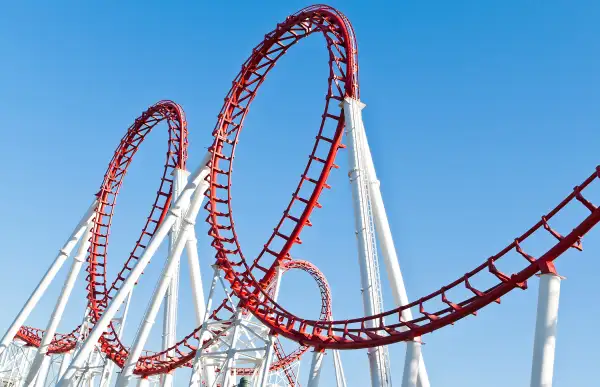Emotional Rescue: When to Flee Stocks for CDs
Money is not a client of any investment adviser featured on this page. The information provided on this page is for educational purposes only and is not intended as investment advice. Money does not offer advisory services.

One of the things that I’ve been able to count on over my long business-writing career: Most people asking me for stock market advice tend to be frantic.
If the market is falling sharply, as it was the first six weeks of this year, they want to know if they should sell everything right now and hide their money under a mattress or in a money market mutual fund. (Kind of the same thing these days, with the average money fund paying just 0.11% annually.)
If the market is flirting with new highs, as it has been until the last few days, they want to know if they should pile in right now before prices rise even more, or if they should sell everything before prices collapse.
My answer goes like this. Sure, it makes sense to worry about your stock portfolio–but it makes no sense for retail investors to obsess over our holdings. Or to try to time the market. After all, even plenty of professional investors, who have insights and information that we retail investors generally lack, often get market timing wrong.
If you can’t deal with the emotions generated by the market’s lunatic lurches–or if you can’t afford to have your portfolio shrink–maybe it’s time to move on. Yes, sell some or all of your holdings and put the proceeds into money funds or certificates of deposit. This won’t produce much in the way of income under current conditions. But it’s better to be partly or entirely out of the market than to obsess over your portfolio night and day.
Look, I’m not telling you that loading up on money funds or CDs is a good investment strategy. But it’s better for your health to cut back exposure to stocks than to worry about stock prices 24/7.
That said, here is the advice I give friends and family: If you won’t need to cash in your holdings for a decade or two or three, just keep doing what you’re doing. And even if you’re my age (71) but have financial staying power, don’t feel compelled to do anything drastic.
As I’ve said before and will doubtless say again, I don’t know where stocks will go from here – and no one else does, either.
If you’re dealing with individual stocks or with specific segments such as Internet startups, the market value of your holdings can go down and stay down forever.
But if you’re in high-quality, low-cost, broadly based index funds (which are major elements in my portfolio and should probably be major elements in yours), you will do as well or badly as the overall market. While your portfolio won’t rise in value as rapidly as a less-diversified portfolio would, it won’t go to zero, either.
In other words: Short of a nervous breakdown, stay the course. After all, being able to feel comfortable is the whole point of saving and investing for me. And should be for you, too.
